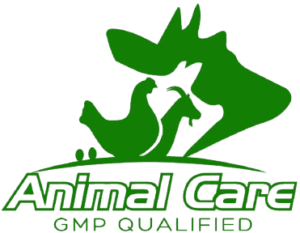Main Text
1. Definition
Infectious Bursal Disease (IBD) is an immunosuppressive disease caused by the Infectious Bursal Disease Virus (IBDV), which primarily targets the Bursa of Fabricius, a key immune organ in poultry. IBD predominantly affects young chickens, especially those between 3 and 6 weeks of age, leading to weakened immunity and increased susceptibility to other infections.
2. Causes
IBDV spreads through the feces of infected birds and can contaminate feed, water, and equipment. The virus can survive for long periods in the environment, especially in crowded, unsanitary conditions. High-density poultry farms, poor hygiene, and inadequate disinfection practices accelerate the spread of the virus.
3. Symptoms
The severity of IBD symptoms depends on the age of the birds and the virulence of the virus strain. Common symptoms include:
- Lethargy: Infected birds appear weak and inactive.
- Decreased Appetite: Birds lose interest in food, leading to weight loss.
- Swollen and Bleeding Bursa: The Bursa of Fabricius becomes enlarged and inflamed, often with bleeding.
- Immunosuppression: Birds’ immune systems are weakened, making them more susceptible to secondary infections.
- High Mortality Rates: In severe cases, particularly among young birds, mortality rates can reach 20-30%.
4. Transmission
IBDV spreads through several routes, including:
- Direct Contact: Healthy birds become infected through contact with contaminated feces, secretions, or equipment.
- Indirect Transmission: Contaminated feed, water, equipment, tools, and even the movement of personnel and vehicles can spread the virus between farms.
- Vertical Transmission: Though rare, infected hens can sometimes pass the virus to their offspring through eggs.
5. Prevention Measures and Product Solutions
Effectively preventing and managing IBD requires a multi-faceted approach, including reducing virus transmission, enhancing poultry immunity, and maintaining a clean environment. Mascot provides a comprehensive range of solutions to help farmers manage IBD effectively:
- Medicinal Products
Mascot offers a range of veterinary medicinal products that target common secondary infections in poultry, such as E. coli and respiratory diseases. These products are essential for controlling bacterial infections during IBD outbreaks, minimizing the overall impact of the disease on poultry flocks. - Disinfectants
Regular disinfection is crucial in controlling the spread of IBD. Mascot provides a variety of disinfectants that can be used to sanitize poultry houses, equipment, feed storage areas, and water sources. These disinfectants are effective in reducing the survival of viruses in the environment and maintaining biosecurity. - Antibiotic-Free Products
As consumer demand for antibiotic-free poultry products increases, Mascot offers a range of antibiotic-free solutions that help enhance poultry immunity without relying on antibiotics. These products support healthier birds and contribute to a safer, antibiotic-free production system, improving overall product safety. - Fermentation Products
Mascot fermentation products are based on natural microbial fermentation processes that improve gut health and boost the immune system of poultry. By promoting better digestion and nutrient absorption, these products also help reduce the gut-related issues that can arise during IBD infections, aiding faster recovery. - Herbal Plant Extracts
Mascot herbal plant extracts, formulated with natural ingredients such as Astragalus and Codonopsis, are designed to boost poultry immunity and protect against IBDV infections. Regular use of these extracts strengthens the immune system, reduces the risk of secondary infections, and helps birds recover more quickly.
6. Response Strategies
While there is no specific cure for IBD, supportive care can help mitigate the disease’s effects and prevent secondary infections. Key response strategies include:
- Nutritional Support
Provide infected birds with high-nutrition, easily digestible feed, supplemented with vitamins A, E, and C to strengthen their immune system and promote faster recovery. - Electrolyte and Vitamin Supplementation
Adding electrolytes and vitamins to drinking water helps birds stay hydrated and supports their immune response, enabling them to fight off viral infections more effectively. - Preventing Secondary Infections
Since IBD weakens the immune system, birds are more vulnerable to bacterial infections. Using antibiotics under veterinary supervision can help prevent and control secondary bacterial infections, further reducing mortality rates.
Conclusion
Infectious Bursal Disease presents a significant challenge to poultry farming, particularly due to its impact on young birds and their immune systems. By implementing a combination of strong biosecurity measures, using Mascot’s range of medicinal products, disinfectants, antibiotic-free options, fermentation solutions, and herbal plant extracts, farmers can effectively reduce the spread of IBD, strengthen the immune systems of their birds, and improve flock




